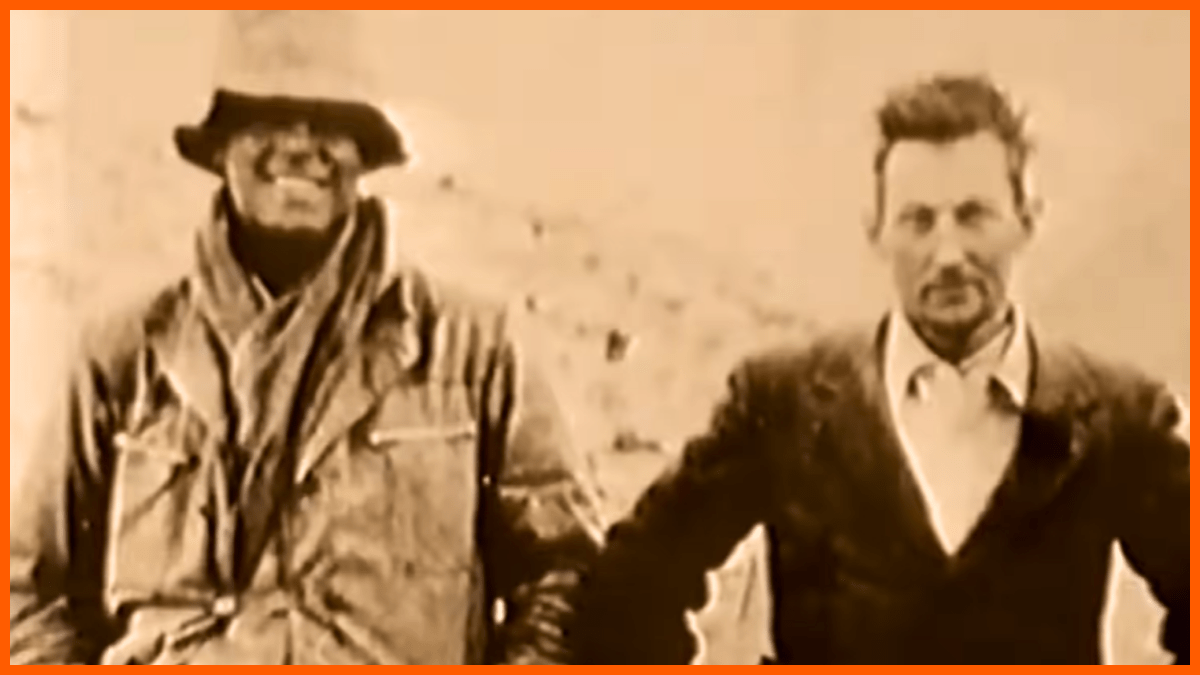In May 1999, 75 years after George Mallory and Andrew “Sandy” Irvine set out on a last-ditch effort to be the first mountaineers to summit Mount Everest, never to be seen alive again, a team of American climbers made an astounding discovery that helped shed some light on the prominent 20th-century mystery.
At an altitude estimated to be around 26,700ft (8,138m), and after stumbling across a couple of more recent corpses, Conrad Anker, a member of the group, finally found something closer to what they were searching for: a visibly older, partly clothed, mummified body. Upon inspection, they identified the body through the name tag sewn into his clothes. It was Mallory.
Twenty-five years after Mallory’s body was discovered, a National Geographic documentary team happened upon a worn-out leather boot sticking out of the ice. Recalling the moment, the director, Jimmy Chin, said: “I lifted up the sock, and there’s a red label that has A.C. IRVINE stitched into it. We were all literally running in circles dropping F-bombs.”
Finally, a hundred years after the pair’s disappearance, Irvine’s remains were found.
Who were George Mallory and Andrew Irvine?
At 37 years old, George Mallory, a professional teacher, was a veteran climber, Britain’s best. He had arranged for a 22-year-old Andrew Irvine, an undergraduate scholar from Oxford with little mountaineering experience but a passion for it, to accompany him on his third and final attempt at reaching the mountain’s summit.
On the morning of June 6, 1924, Mallory and Irvine strapped on their heavy oxygen equipment, which the latter was proficient in, and parted ways with the rest of their team in the direction of the top. Time was against them, as a seasonal monsoon was about to hit the Himalayas. The pair were last spotted less than a thousand feet from the peak on June 8, at around 1 p.m., before they disappeared beneath the rolling clouds.
Captain John Noel, the expedition’s photographer, who is credited with financing and releasing The Epic of Everest documentary, said of George Mallory: “I got the impression that [Mallory] was completely obsessed with the idea of climbing Mount Everest. He set his heart on it and talked about nothing else at all. And, I believe, that that was one of the reasons for his death.”
Now, for the biggest mystery: Did they reach the top?
The one thing that may have proven once and for all whether Mallory and Irvine were the first mountaineers to ever reach the world’s highest peak was never found: Mallory’s camera, which could have contained photographic evidence. Different people have different opinions, but it cannot be conclusively proven whether they perished on their way up or back down. That said, Mallory’s goggles were found in his pocket, which may indicate that he took them off when it got darker during the descent.
According to John Noel, when Mallory and Irvine were last seen, they were already 4 hours late from what they had delineated in their discussed plan. At that point, they should have turned back to camp.
Although Irvine had endeavored to maintain and fix the oxygen apparatuses as much as possible, it is well known now that they weren’t put together as they should have been, which may have contributed to their demise.
However, Noel Odell, the expedition’s geologist who last sighted them, never once doubted that the two could have reached the top. He said, shortly before he passed in 1987:
“I think that when they got to the foot of the final pyramid, it was late. Mallory would say ‘well, we’ve got to hurry up here because it is almost approaching dusk, and along we go.’ I don’t think Irvine in any way would have hesitated to go nor do I think he had been unfit enough to say, ‘oh no, I don’t think we can manage it.’ I think he would have been perfectly willing to go on and they might well have got to the top.”
When questioned why he wished to climb Mount Everest, George Mallory offered a concise answer later hailed as his most famous quote, an answer which sums up his unyieldingly determined and adventurous spirit: “Because it’s there.”
